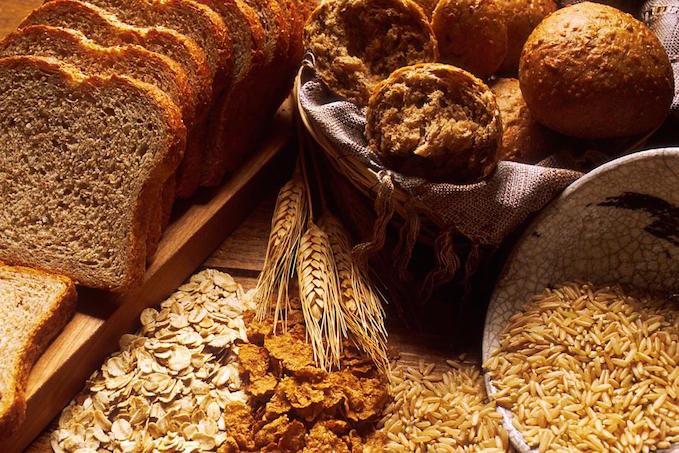The Truth About Carb Cycling For Fat Loss

Just like both intermittent fasting and calorie cycling, carb cycling is another way of manipulating your diet.
But unlike the previous 2 approaches, instead of focusing on manipulating calories, it puts limits on which macronutrients you are eating on certain days.
And just as with the other 2 dietary ‘hacks’, there is a ton of confusion currently surrounding carb cycling (not to mention carbohydrates in general).
In fact, carb cycling is often sold as another ‘holy grail’ dietary approach, where you can effortlessly lose weight by stuffing your face with carbs on certain days.
And as much as we would all love that to be the case, it is overly simplistic…
In this article, I’m going to give you the full rundown on what carb cycling is, how it works, and whether it is worth doing.
What Is Carb Cycling?
The basic premise here is pretty simple.
Throughout the week, you have certain days that are designated to be ‘high carb’ days, and other days that are designated to be ‘low carb’ days.
In general, the high carb days will be the days where you are working out, whereas the low carb days will be your rest days.
Protein is kept high on all of the days, whereas fat consumption varies inversely with carb consumption.
That is, on the high carb days, fat is kept low, and on the low carb days, fat is kept high.
Therefore, the low carb days will be almost like you’re eating an Atkins-style diet, whereas the high carb days will look more like a modified low-fat diet (with higher protein).
More specifically, on the high carb days you would eat:
- 2-2.5 grams of carbs per pound of body weight
- 1 gram of protein per pound of body weight
- 0-0.15 grams of fat per pound of body weight
In contrast, on the low carb days you would eat:
- Less than 0.5 grams of carbs per pound of body weight
- 1.5 grams of protein per pound of body weight
- 0.5-0.8 grams of fat per pound of body weight
What Is Going On Here?
The idea here is that carbs will play a critical role both in terms of both glycogen and insulin.
The high carb days help to refill your body’s muscle and liver glycogen stores, while also raising insulin levels, which can supposedly have an anabolic benefit (help you build muscle).
The low carb days supposedly ‘trick’ your body into burning more fat, due to lower insulin levels.
This an offshoot of the whole ‘metabolic advantage’ argument for low carb diets.
This is the belief that high levels of insulin help you build muscle, whereas low levels of insulin speed up your metabolism, allowing your body to burn more calories.
Therefore, it follows that cycling between both high and low carb days provides the benefits of both high and low insulin levels – namely, muscle building and fat loss.
So Is This Actually True?
There are elements of truth here, but that’s about the extent of it.
Multiple studies haven’t demonstrated that macronutrient manipulation won’t result in any additional fat loss, assuming that total energy balance remains the same.
If you’re interested, take a look at this one, this one, and this one.
All of them concluded that there is no difference in total weight loss, metabolic expenditure, insulin, or hunger between low carb and high carb diets.
That means that you can lose just as much weight eating a high carb diet vs a low carb diet, if your energy intake and expenditure is the same.
Further, the whole metabolic advantage concept that low-carb pundits have grasped on to doesn’t really measure up either…
While higher levels of insulin have been shown to help prevent muscle breakdown, there are no demonstrated anabolic benefits – it won’t help you build any additional muscle.
What’s more, low levels of insulin won’t speed up your metabolism. This was based on flawed studies that wrongly attributed a slight metabolic increase to lowered insulin from low-carb dieting, whereas really it was just a result of having eaten food!
Digestion temporarily elevates metabolism – although not enough to offset the calories – and there is no magical property of a low-carb diet that does this more than other nutrients.
Finally, as I’ve pointed out before, low carb dieting is absolutely terrible for weight training.
For this reason, having these frequent low-carb periods can risk keeping your glycogen too low to maximize your workouts, even with the high-carb days factored in.
A Final Consideration
One further thing to note is that carb cycling has a massive impact on your food choices.
There are certain foods that are pretty much completely off limits on the high carb days (fatty foods), and other foods that are completely off limits on the low carb days (carb-heavy foods).
Technically, this can be either a good or a bad thing, depending on your perspective.
In fact, this exclusionary approach can actually work better with certain rule-based diets, such as the Anabolic Diet.
But as far as flexible dieting goes, it is an unnecessary complication that greatly decreases flexibility without providing much – if any – benefit.
Finally, I should again reiterate that you can get very lean while consuming a good amount carbs each day, provided your overall energy balance is correct.
In short, there isn’t much benefit to forcing yourself to have these very low-carb days, and it will likely to do more harm than good in terms of your training.